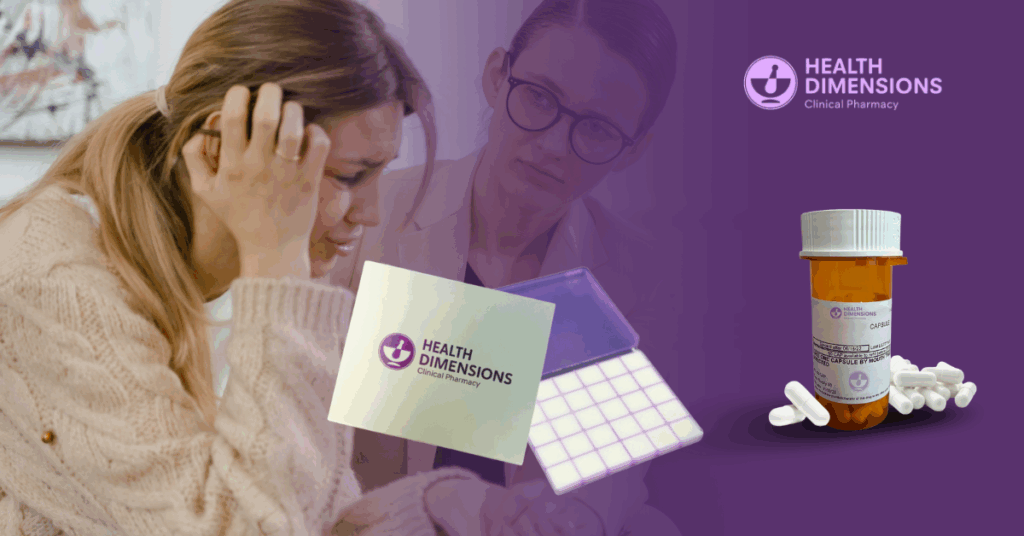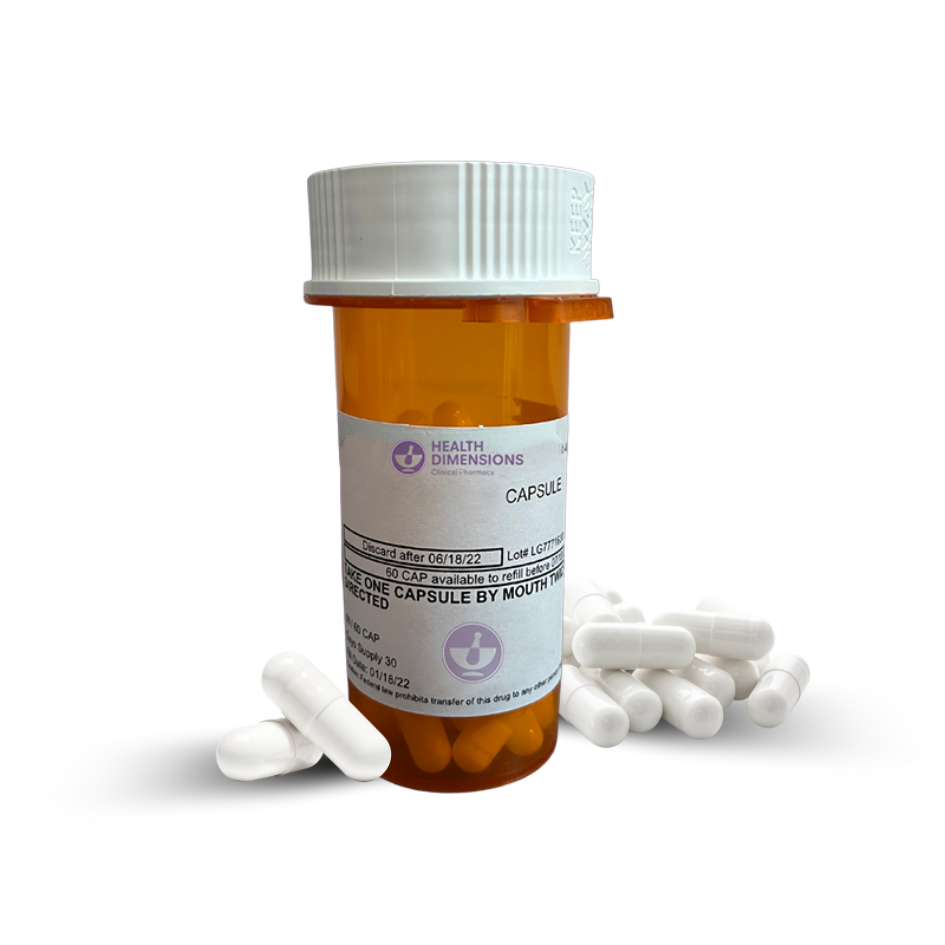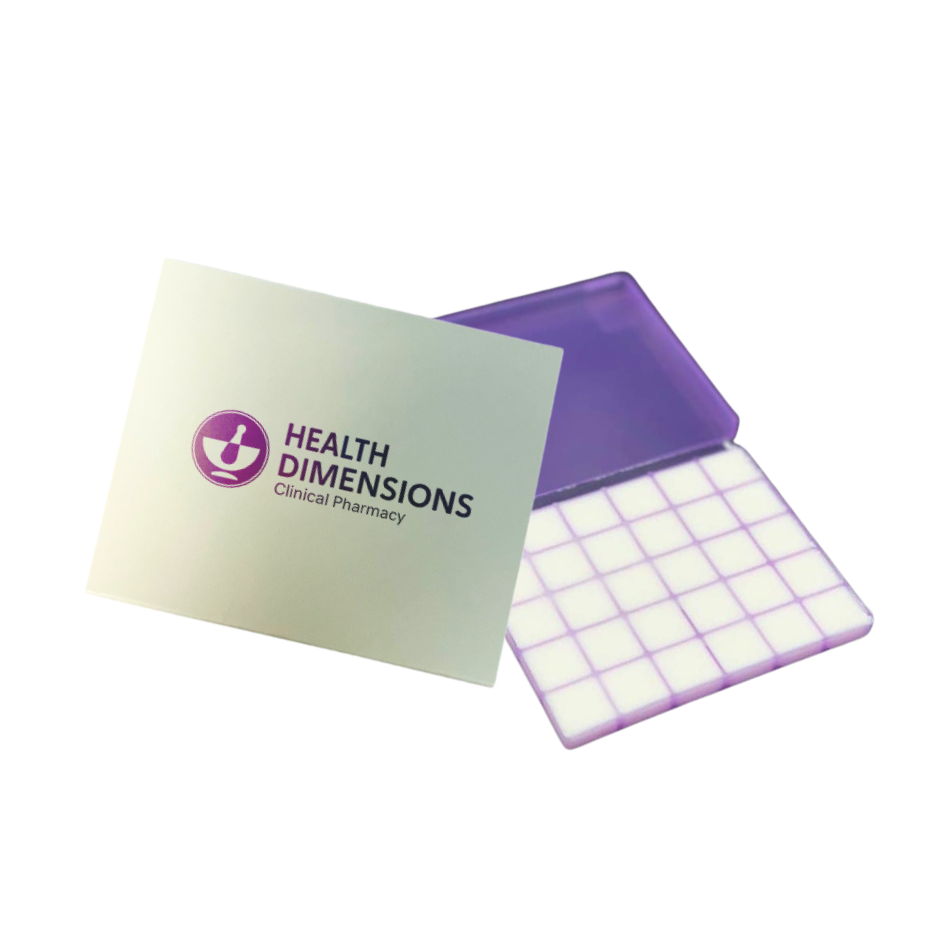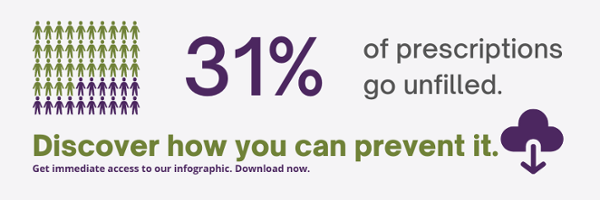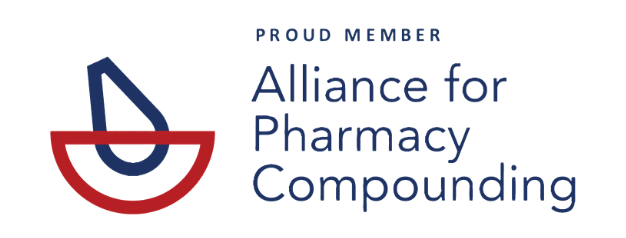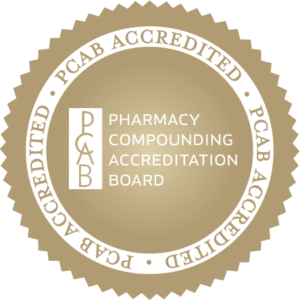D-Cycloserine & Depression: Unlocking Neuroplasticity with TMS Support
What if You Could Jumpstart the Brain’s Recovery Process in Just One Day?
Depression affects millions of Americans each year. For many, standard medications like SSRIs and SNRIs provide little to no relief—especially for those with treatment-resistant depression (TRD).
But emerging neuroscience is pointing to an innovative pairing that may dramatically enhance recovery: D-Cycloserine (DCS) combined with Transcranial Magnetic Stimulation (TMS).
At Health Dimensions Clinical Pharmacy (HDRx), we support prescribers looking to optimize patient outcomes with thoughtfully compounded DCS capsules and troches, shipped with prescription to Michigan, Ohio, Indiana, Illinois, Wisconsin, Minnesota, and Florida patients.
What Is D-Cycloserine (DCS)?
D-Cycloserine is an antibiotic-turned-neuromodulator—originally FDA-approved for tuberculosis, but now being used off-label to enhance learning, synaptic rewiring, and memory formation in the brain. It’s classified as a partial agonist of the NMDA receptor, which plays a critical role in modulating glutamatergic activity—a key neurotransmitter pathway tied to depression and neuroplasticity.
In more simple terms: DCS may help the brain learn to get better faster.
When used with TMS, it may accelerate and strengthen the brain’s ability to rewire and recover.
DCS is not a standalone antidepressant, but a powerful adjunct in modern neuromodulation, and demonstrates anti-depressant effects when used with other standard medications for depression.
In clinical practice, some providers choose to incorporate FDA-approved medications such as D-cycloserine and lisdexamfetamine as adjunctive agents, used within their established safety profiles and approved labeling. These medications are not approved for the treatment of depression, and their use is at the discretion of the treating provider.
What is Transcranial Magnetic Stimulation (TMS)?
TMS (Transcranial Magnetic Stimulation) reactivates dormant brain regions using magnetic pulses.
*In more simple terms: DCS may help the brain learn to get better faster.
- FDA-cleared for depression and other mental health conditions when standard medications don’t work
- Non-invasive, well-tolerated, outpatient treatment
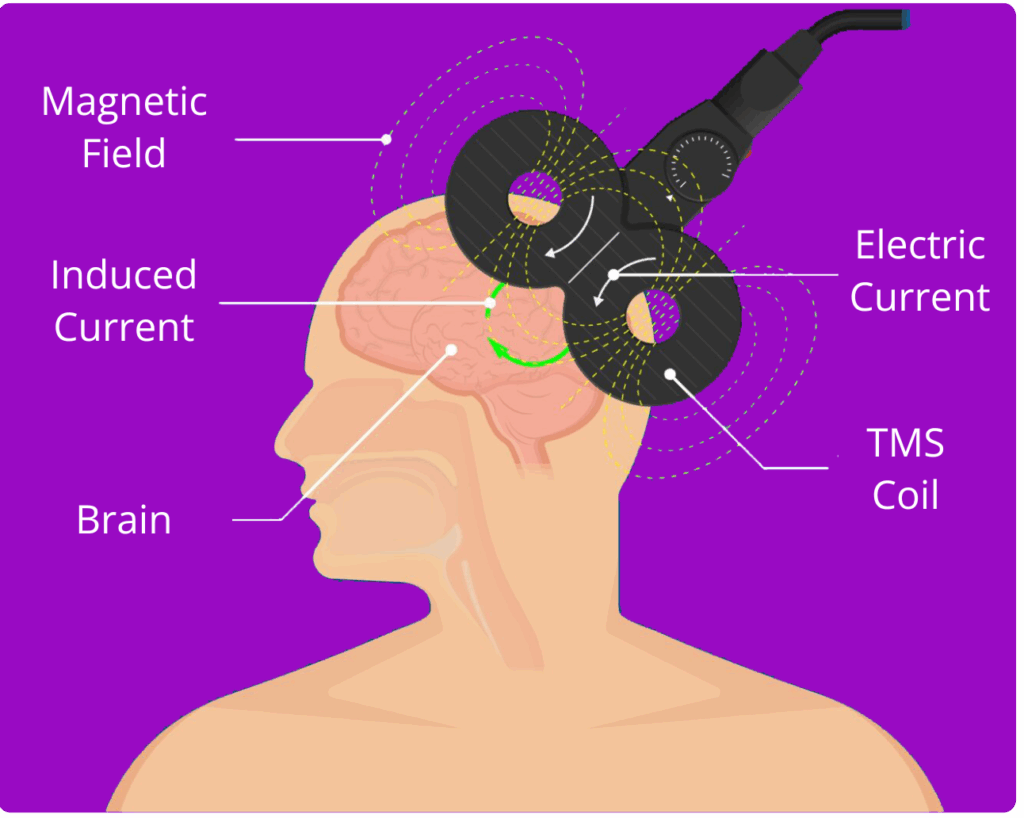
TMS + DCS: Why the Combination?
Transcranial Magnetic Stimulation (TMS) is already well-known in psychiatric circles for its ability to stimulate underactive regions of the brain in depression. TMS uses non-invasive, MRI-strength magnetic pulses to kickstart neuronal activity, especially in areas linked to mood regulation.
But even TMS takes time.
Enter the ONE-D Protocol (Optimized, Neuroplastogen-Enhanced Depression)– a single-day, 20-session TMS treatment enhanced with:
- 125 mg Compounded D-Cycloserine (oral capsule or sublingual troche)
- 20 mg Lisdexamfetamine (generic).
Why is D-Cycloserine (DCS) so important? Traditional TMS is effective—but DCS may help it work faster and better. Mental illness “turns off” key brain circuits—DCS helps restore communication between these regions. Especially valuable in treatment-resistant depression, where conventional meds fall short.
With DCS + TMS, patients may achieve results in a single day that once took weeks.
What the Research Says
A 2024 study tested this combination in patients with major depressive disorder who had not responded to traditional medications. The findings showed a marked improvement in depression symptoms—within hours to days, not weeks.
“Patients experienced effects in one day that previously took weeks.”
According to real-world pilot data from the study, this combo of DCS+TMS yielded:
- 91% response rate (≥50% symptom reduction)
- 72% remission rate (PHQ-9 score ≤4)
Those results are extraordinary—even by TMS standards.
Source: Vaughn, D. A., Marino, B., Engelbertson, A., Dojnov, A., Weiss, N., Vila-Rodriguez, F., … & Downar, J. (2024). Real-world effectiveness of a single-day regimen for transcranial magnetic stimulation using Optimized, Neuroplastogen-Enhanced techniques in Depression (ONE-D). Link
Additional research supports DCS’s ability to:
- Enhance exposure therapy in PTSD and OCD
- Improve cognitive behavioral therapy outcomes
- Strengthen memory reconsolidation and emotional learning
This is especially promising for those with TRD, PTSD, and OCD, where entrenched cognitive patterns and blunted brain responsiveness are common.
D-Cycloserine Mechanism of Action
DCS acts at the NMDA receptor—a key site in the glutamatergic pathway, which governs brain plasticity and connectivity. Depression is increasingly understood as a disease of “stuck” neural circuits. By modulating glutamate, DCS may:
- Enhance synaptic reconnection
- Improve working memory and cognition
- Facilitate neural network restoration
This makes it ideal as a neuroplasticity enhancer, especially when timed with TMS stimulation, which “opens the door” for rewiring the brain.
Available Formats at HDRx
Health Dimensions Clinical Pharmacy compounds D-Cycloserine in formats that optimize onset and compliance:
- Oral Capsules (125 mg) – easy-to-dose, used widely in protocol support
- Sublingual Troches – fast-acting, bypasses gastrointestinal degradation
Important Note: D-Cycloserine is not FDA-approved for depression and is used off-label under prescriber discretion. Providers should monitor each patient’s progress closely.
Who Should Consider This Treatment?
DCS + TMS may be a good option for:
- Patients who have tried multiple antidepressants with no relief
- Individuals struggling with ruminative or rigid thinking
- Patients undergoing TMS, Ketamine, or Neurofeedback
- Those in intensive therapy for PTSD, OCD, or phobias
If you’re a provider considering ways to enhance your TMS outcomes, or a patient who feels like you’ve “tried everything,” this may be a powerful next step.
How to Order D-Cycloserine from HDRx
HDRx makes it simple for healthcare providers to prescribe compounded D-Cycloserine. Our pharmacy:
- Ships to MI, OH, IN, IL, WI, MN, and FL with a valid Rx
- Offers fast turnaround on compounded orders
- Provides support in selecting appropriate formulation and dosing
Taking Action Against Depression
Depression is a multifaceted illness—and it often requires a multifaceted approach. D-Cycloserine may be the missing link in accelerating recovery, when paired with neuromodulation like TMS. If you’re a clinician or a patient seeking new options, consider DCS as a part of your toolkit in restoring brain health and emotional resilience.
At HDRx, we’re proud to support the future of personalized mental healthcare—one patient, one compound at a time.
We ship prescriptions to MI, OH, IN, IL, FL, WI, MN
References:
Cole, J., Sohn, M. N., Harris, A. D., Bray, S. L., Patten, S. B., & McGirr, A. (2022). Efficacy of adjunctive D-cycloserine to intermittent theta-burst stimulation for major depressive disorder: a randomized clinical trial. JAMA psychiatry, 79(12), 1153-1161. Link
Cole, J., Selby, B., Ismail, Z., & McGirr, A. (2021). D-cycloserine normalizes long-term motor plasticity after transcranial magnetic intermittent theta-burst stimulation in major depressive disorder. Clinical Neurophysiology, 132(8), 1770-1776. Link
DeMayo, M. M., Watson, M., Harris, A. D., & McGirr, A. (2025). Serum levels of D-cycloserine predict antidepressant effects in pharmacologically enhanced intermittent theta-burst stimulation. Journal of Affective Disorders, 377, 60-67. Link
Dong, Z., Grunebaum, M. F., Lan, M. J., Wagner, V., Choo, T. H., Milak, M. S., … & Kantrowitz, J. T. (2021). Relationship of brain glutamate response to D-cycloserine and lurasidone to antidepressant response in bipolar depression: a pilot study. Frontiers in Psychiatry, 12, 653026. Link
Gaynes, B. N., Lux, L., Gartlehner, G., Asher, G., Forman‐Hoffman, V., Green, J., … & Lohr, K. N. (2020). Defining treatment‐resistant depression. Depression and anxiety, 37(2), 134-145. Link
Mcgirr, Alexander Robert Angus. “Adjunctive d-cycloserine augmentation of transcranial magnetic stimulation (tms) therapy for obsessive compulsive disorder.” U.S. Patent Application No. 18/712,677. Link
Vaughn, D. A., Marino, B., Engelbertson, A., Dojnov, A., Weiss, N., Vila-Rodriguez, F., … & Downar, J. (2024). Real-world effectiveness of a single-day regimen for transcranial magnetic stimulation using Optimized, Neuroplastogen-Enhanced techniques in Depression (ONE-D). Link
Vestring, S., Dorner, A., Scholliers, J., Ehrenberger, K., Kiss, A., Arenz, L., … & Normann, C. (2024). D-Cycloserine enhances the bidirectional range of NMDAR-dependent hippocampal synaptic plasticity. Translational Psychiatry, 14(1), 18. Link

